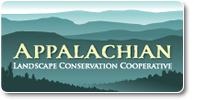Valley River Watershed Habitat Restoration Project
| Project Start Date | |
|---|---|
| Project Leader | |
| Organization |
Background
Valley River is an outstanding aquatic resource in the mountain region of North Carolina; however,303(d) listing and habitat degradation haw become more consistently the norm across the watershed. To address these problems, HRWC established,enhanced and estored adequate riparian buffers along the banks of the stream, restored aquatic habitat by reducing sedimentation and adding large woody debris in appropriate areas, and educated watershed residents about the river and these needs.
After extensive GIS and field site visits by the HRWC restoration coordinator, five primary sites along the Valley River were selected for riparian and aquatic habitat improvements. These sites were:
1. Murphy River Walk and The Learning Center!
2. Murphy High School Track
3. Middle Valley Project Site
4. Welch Farm
5. Cherokee Co. Heritage Park
Outcomes

- Murphy Track Site During
Completed
1. Murphy River Walk and The Learning Center!
Murphy River Walk is an unpaved, multi-use trail along the Valley River from Konahete Park to the old railroad depot in Murphy. Although it is a great location for an urban “greenway” and gives people access to beautiful parts of the Valley River, after decades of neglect, the whole area is terribly infested with non-native invasive plants. HRWC has used multiple crews of volunteers to help eradicate the invasive plants and provided technical advice related to erosion and native plantings over the entire period of the grant.The Learning Center! is a charter school located on a small tributary to the Valley River in the vicinity of the River Walk. The HRWC restoration coordinator has worked extensively with the school to create and implement a plan for eradicating invasive plants and establishing a native riparian buffer along the tributary, which the school has named Connaheeta Creek.
2. Murphy High School Track

- Murphy Track Site - Before
1,100 linear feet of both sides of the Valley River at this location.The most direct outcome with regard to water quality from this site is the reduction of an estimated 552 tons/year of soil from the Murphy High School track site. Furthermore, if a cloudburst or remnants of a hurricane had hit this area directly, massive failure of the bank could have resulted in a much more devastating impact to the river and the track itself without stabilization.
3. Middle Valley Project Site
The “Middle Valley” project is a 5,200-linear foot reach of the Valley River located along US Highway 19/74 just southwest of Marble in Cherokee County, NC. HRWC conducted a significant restoration effort at this site in 2006 at which time the landowners donated a permanent conservation easement for a 50-foot forested riparian buffer area along the entire reach and a 30-foot buffer along 450 feet of Sam Branch on the site. HRWC constructed several “log jam” structures in a long pool to improve aquatic habitat for the sicklefin redhorse. These structures proved a big success as a feeding and shelter area for redhorse and other fish. Because the previous use of this land was pasture, and livestock had free-range of the river along the nearly mile-long reach, re-establishing a forested buffer was a challenge. This grant project allowed for an intensive focus on removing invasive plants that were beginning to gain a foothold in some sections, planting additional trees in areas where some where lost to beavers, guarding trees in beaver-prone areas, and adding live stakes to other areas when more appropriate to do so. Pastureland improvements were also made at this site.
4. Welch Farm
This site is a working farm that was recently purchased by the Land Trust for the Little Tennessee. HRWC has long desired to conduct restoration along this 4,460-linear foot reach; however, the previous landowners were not local and, despite our best efforts, we could not accomplish the project prior to sale of the property. Now that it is owned by the land trust, we are moving forward with plans for restoration. In partnership with LTLT, we are working to remove the invasive plants from the existing trees and shrubs in the 50-foot riparian easement area. This fall, the previously farmed portion of the easement area will be planted in native trees and shrubs. We are also seeking funding for stream restoration at the mouth of Taylor Creek across from the Welch Farm property. Agricultural best management practices have been installed at this site by partner agencies, Cherokee Co. Soil and Water Conservation District and the Natural Resources Conservation service for the portions of the property (totaling 65 acres) that are still being farmed. There are also very unique “oxbows” – old meanders of the Valley River which have long since been cut off with a straighter channel, but which still receive flood waters and some flow from a very small intermittent stream. HRWC developed a management plan for, and guided implementation of, removal of invasive plants and enhancement of wetland habitat (4.6 acres) in this location.
5. Cherokee Co. Heritage Park
This project site is located along 1,400 linear feet of the Valley River in Andrews, NC and 1,330 linear feet of Town Branch – a Valley River tributary. Work at this site included development and implementation of a park maintenance plan to eliminate mowing of the stream banks along Town Branch, protection for a wetland area, and better mowing and maintenance practices overall for the park area to prevent areas of upland erosion from over-mowing. A 600-foot long ditch about three feet wide and three feet deep had been fairly recently constructed to drain a portion of the land next to the park for crop production. The ditch was severely eroding and was also diverting water away from the wetland area. As part of this project flow was returned via pipe to the wetland area; the ditch was filled in; and the area was re-seeded. HRWC developed and implemented a plan for eradication of invasive plants in the extensive riparian areas of this site and started work. Although it will probably take three years to get the invasives cleaned out, the work has gained a good foothold through this grant funding. HRWC also worked with the county to plant a 100-foot buffer of native trees and shrubs on the Valley River and a 50-foot buffer on Town Branch. Although this work was begun under the SARP grant, the planting work will continue through March 2012.
Associated Locations
| Town | zip code | county | state | congressional dist |
|---|
Barriers
| Name of barrier | Latitude | Longitude | FONS ID | FIS Project ID | FWS Acc. # |
|---|
Document Actions







